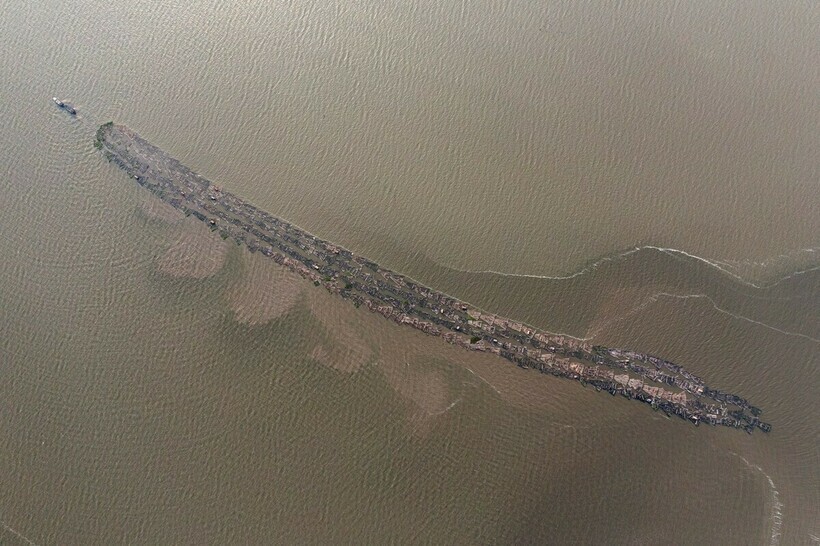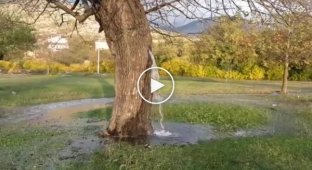Sad reality: 12 photos of Nigeria showing disappearing forests (13 photos)
From 2001 to 2021, Nigeria lost 1.14 million hectares of forest, according to Global Forest Watch. What does the depressing deforestation and life of local woodcutters look like? 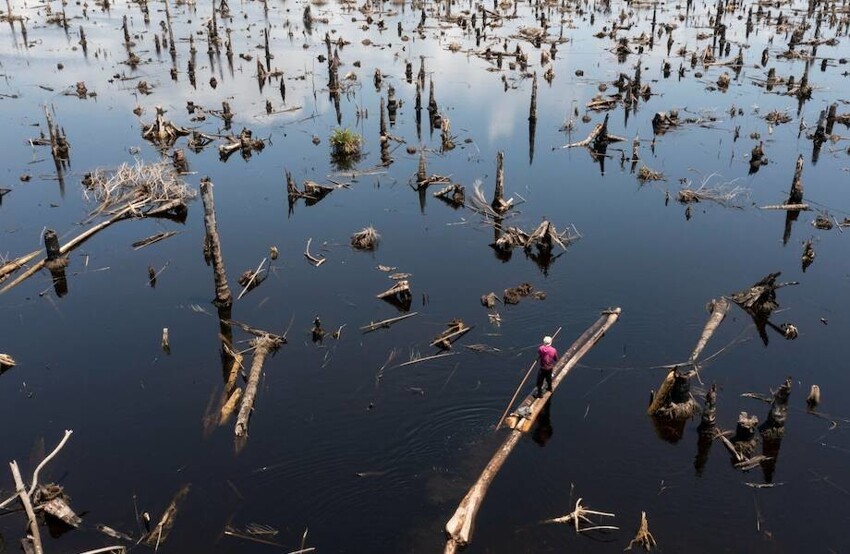
Cutting down trees for logging, opening farmland or meeting energy demands for a growing population is putting pressure on Nigeria's natural forests. 1.14 million hectares of forest can be compared to 587,000,000 tons of carbon dioxide, or 11% of the planet's total tree cover. Photographer and conservationist Nyancho Nwanri traveled to Nigeria to find out how things are going there and take photographs that show the extent of the problem. There he met local lumberjacks and learned how they lived.
Komiye Ikuejamoye, a logger, cuts down a tree with a chainsaw in Ipara, Ondo State.
Nigeria has rich biodiversity that has allowed it to prosper, but deforestation has been so rampant in recent years that the country has the highest rate of deforestation in the world. 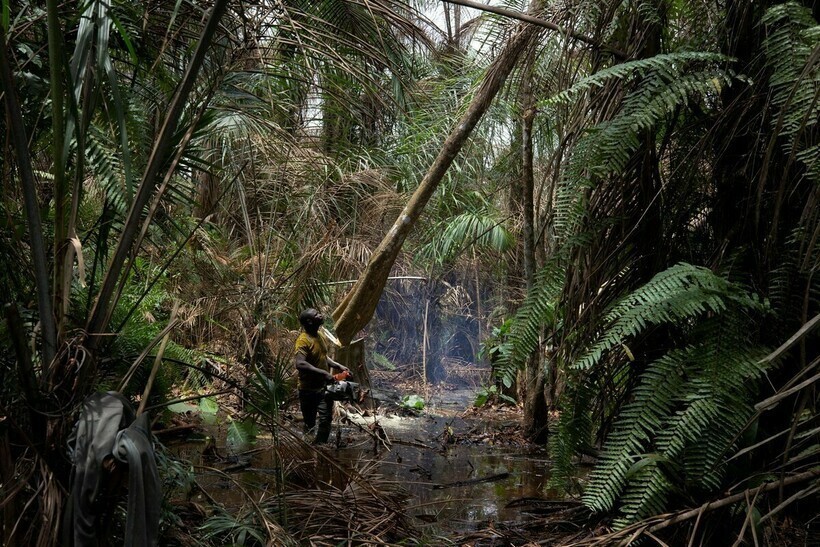
Lumberjack measuring a felled tree in the forest
Having no other sources for construction, fuel or energy, people cut down trees in huge quantities. 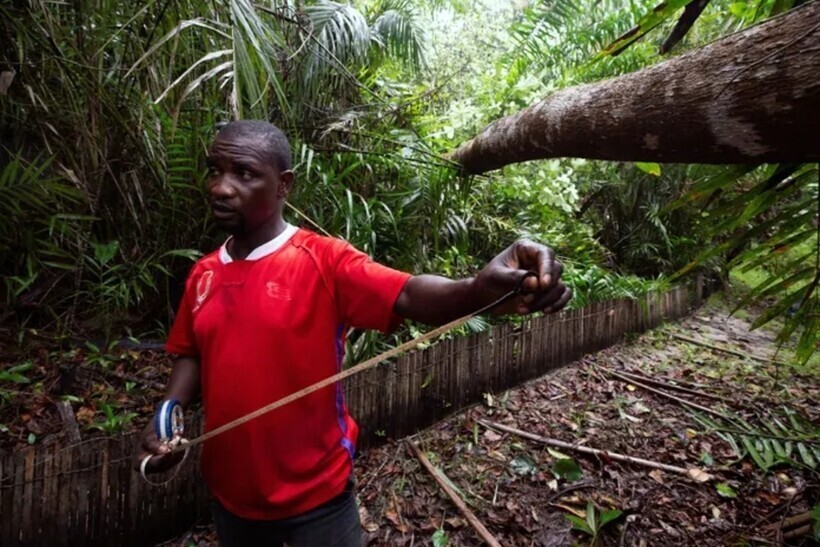
Workers divide the logs into several parts, clearing them of branches.
Local authorities are trying to provide residents with alternative options for obtaining fuel or energy, but all of them are many times more expensive, which makes the demand negligible. 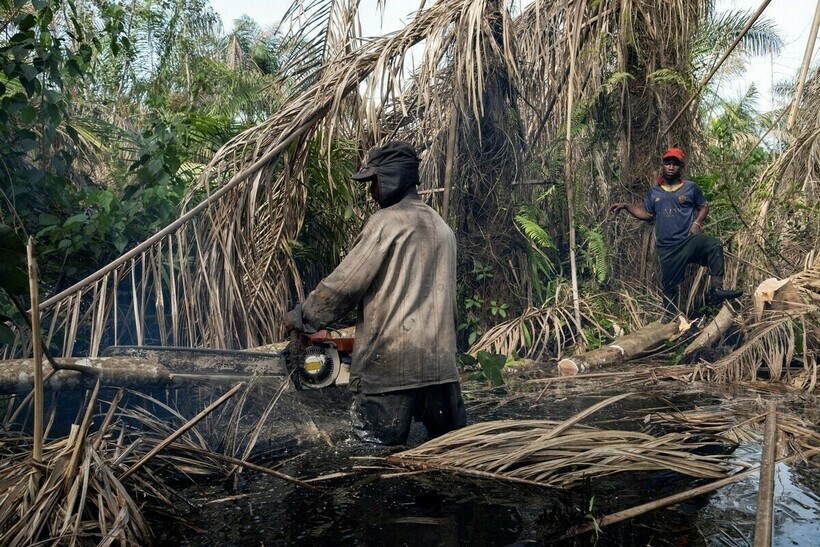
Egbontolua Marigi, a logger, pulls a log through a flooded forest floor
In addition, Nigerians cut down trees to clear land for farmland, pastures and vegetable gardens. 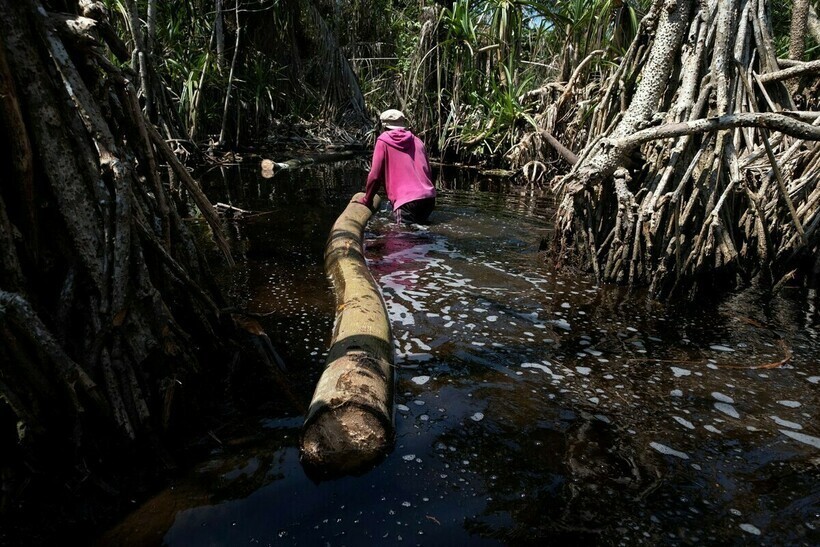
Woodcutters gather after a day's work to share a meal of rice and beetle pupae they have collected from the forest. 
This is what the layout of logs along the river looks like
Back in the 1950s, large areas of land were reserved as protected areas, but at the moment they do not exist - the forests were destroyed long ago after the country gained independence in 1960 and was able to manage the land itself. 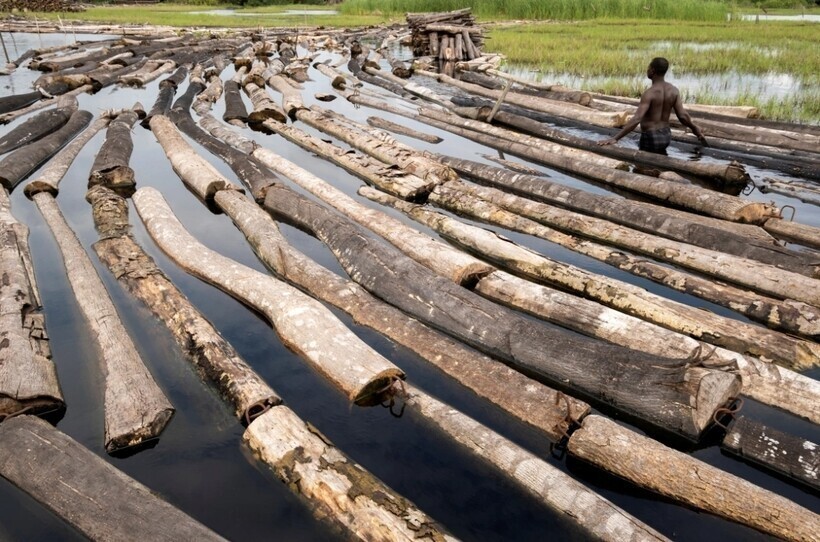
While dragging logs you can relax...
As a result, over the entire existence of the country, local residents have cut down more than 50% of their forests. 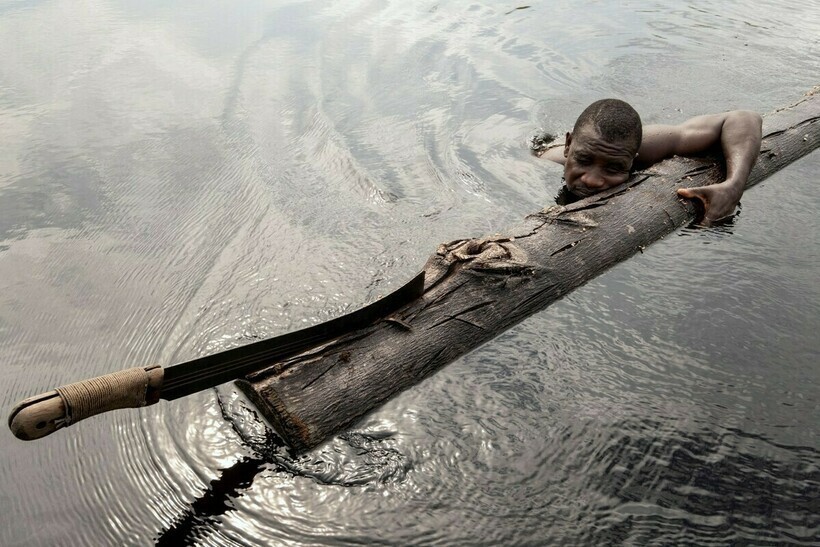
...or chat with locals
As a result, the fauna suffers—hundreds of animals die: some lose their home, others lose their food, and others simply have nowhere to hide from hunters. 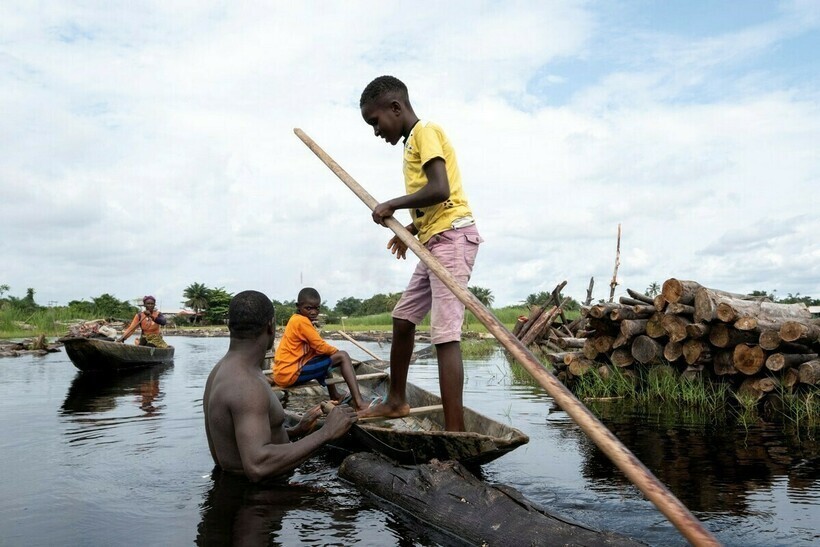
The rafts, made from logs sourced from Ondo State and other parts of the country, are assembled at the Lagos Lagoon, near the Ebute Metta sawmill 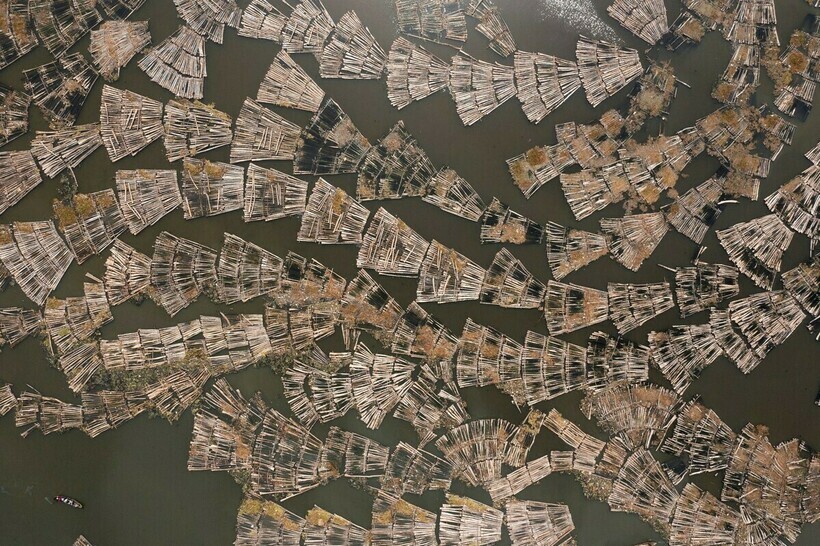
Elevuro, the captain of the tug, controls the line of rafts behind him
At the moment, the authorities have managed to provide cheap kerosene to some regions and reduce the volume of deforestation there, but this is only the beginning of a huge planned effort to preserve forests. 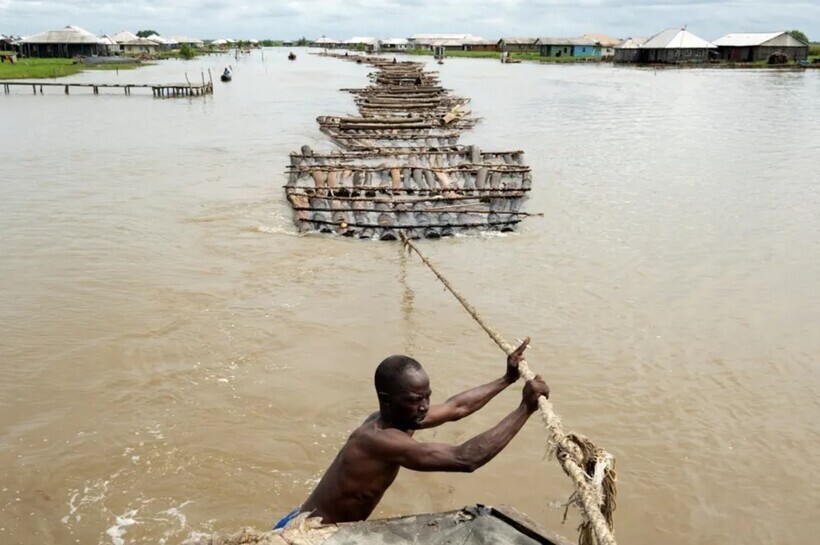
Loggers sit in a shelter built on floating rafts of logs being transported to Lagos
Another part will be the proliferation of solar panels for energy, hydroelectric power stations and wind generators. But the authorities are trying to get funds from the UN and other world organizations involved in nature conservation. 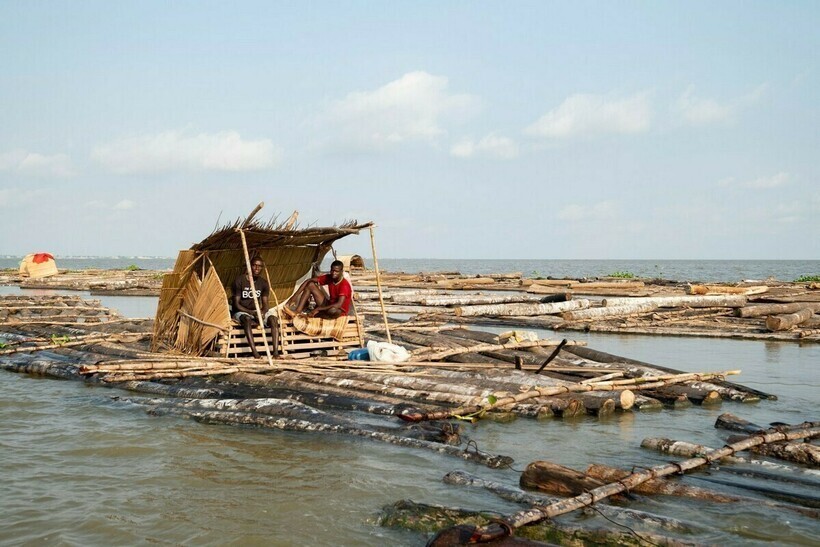
A tug pulls a line of log rafts in Lagos 